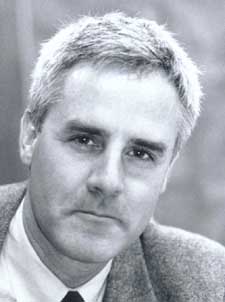Making Conflict Work: TC Psychologist Peter Coleman launches his new book on Oct. 9th at TC
Making Conflict Work: TC Psychologist Peter Coleman launches his new book on Oct. 9th at TC
“What can you do when your boss holds all the cards and enjoys being a jerk? Or when an employee you really depend on is constantly whining and being difficult? Or when vitally important clients insist on being demeaning?
Those questions, and others about “the challenges and opportunities we face when we find ourselves in conflict with those in authority… and with those we have authority over,” are the focus of Making Conflict Work: Harnessing the Power of Disagreement, (Houghton, Mifflin Harcourt, 2014) coauthored by Peter T. Coleman, Professor of Psychology and Education and Director of TC’s International Center for Cooperation and Conflict Resolution, and psychologist and executive coach Robert Ferguson.
The two will discuss their work at TC at a book launch on Thursday, October 9th, from 6 to 8 pm in 179 Grace Dodge Hall. Johnston Barkat, United Nations Assistant Secretary-General, Ombudsman & Mediation Services (M. Phil. ’01) will introduce them.
Read Peter Coleman’s recent piece on increasing “conflict intelligence” in Psychology Today; also his skeptical op-ed in Time magazine on the announcement by Richard Branson, founder of Virgin Group, that he is giving employees unlimited vacation time.
The book’s premise is that while understanding the interaction of conflict and power is vital to effective conflict management, “talking about power differences openly is still taboo in most places in society” and is almost completely absent from discussions of conflicts in the workplace. That state of affairs ignores the reality that “the world may now be flat, but most organizations are not.”
More specifically, research suggests “the lack of detailed attention to emotions and relationships is the biggest gap in our understanding conflict today.”
In chapters with titles such as “Constructive Dominance,” “Strategic Appeasement” and “Principled Rebellion,” the authors lay out “a practical tutorial in managing conflicts across power differences.” Ultimately, they argue, people need a high order of “conflict intelligence” that equips them with a variety of strategies for managing differences of opinion. Like the late Nelson Mandala – “convener and boxer, nonviolent activist and violent militant, empowered prison and embattled president” – they need to be able to employ seemingly contradictory competencies and strategies.
“Know when you need to move from more cooperative and conciliatory strategies into more competitive or contentious ones,” they urge. “Know when to respond to conflict in a manner that “fits the situation, but also know when not to. Know what it looks like when the other disputants cross lines you refuse to cross. Know when it is time to rebel or revolt.”
Published Tuesday, Sep. 30, 2014
